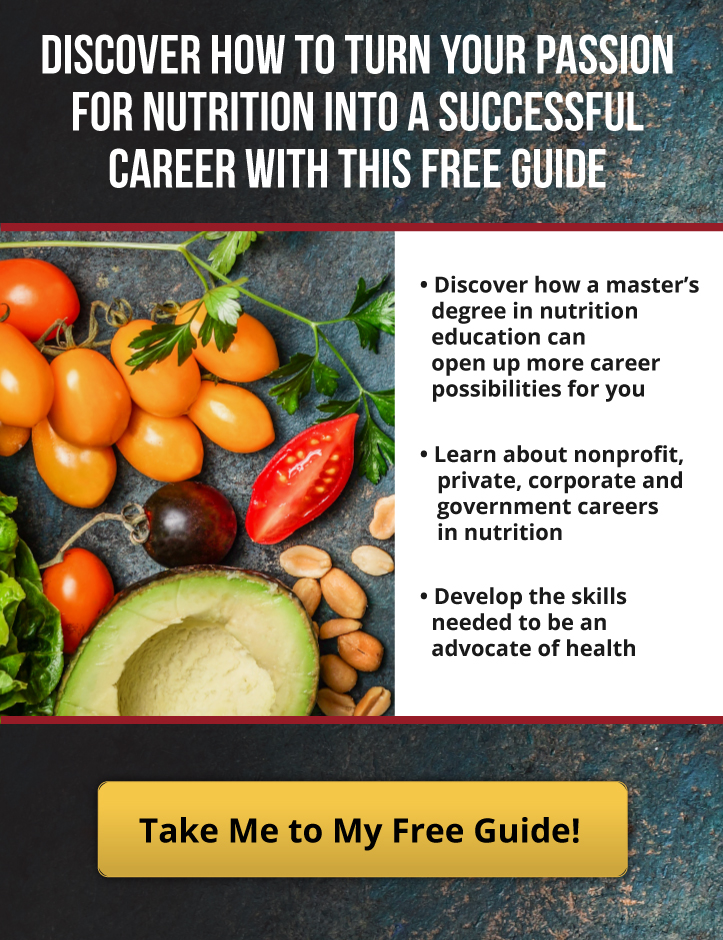People who claim that good nutrition is out of reach tend to give two reasons: They say eating well costs too much, or that it takes too much time. Neither has to be the case. Like most things, the key word is balance: balance in food choices, balance in how you plan and prepare, and balance in terms of what you expect of yourself.
If you have a passion for health and nutrition, this information isn’t new or revolutionary. But if you want to turn your passion into a career and help others lead healthier lives through healthier diets, you need to understand how most people think about nutrition, not just people like yourself who might consider pursuing a master’s degree in nutrition education.
Here are some important concepts to think about regarding balanced nutrition.
Why are Some Foods Nutritious and Others Aren’t?
The answer is not as obvious as you may think. Bread, for instance, can be nutritious or not depending the ingredients and how it was made. Oils can be good or bad; meat can be fatty or lean; carbohydrates can be simple or complex. We know sugary foods are bad for us, but foods that aren’t even necessarily sweet can raise your blood glucose level as well. When teaching others to eat healthy, how do you account for these complicated and oftentimes confusing food rules?
An easy way to make healthy food decisions is by choosing foods as close to their origins as possible. Whole grains are better than processed grains, for instance, and fresh fruits and vegetables are better than packaged juices. And any product that has been made over for convenience—think about instant mashed potatoes or frozen dinners—had to be broken down and packaged, most likely with unhealthy additives and/or preservatives.
“As a registered dietitian, I encourage my patients to focus on ‘whole foods’ that are nutrient-dense rather than ‘processed foods’ that are energy-dense.,” writes Brittany Chin, R.D., L.D. for the Academy of Nutrition and Dietetics’ online magazine Food & Nutrition.
“What is the difference between the two? Well, nutrient-dense foods provide nutrients for your body such as fiber, vitamins, and minerals, with low added sugar and fat, while energy-dense foods, or high-calorie foods, provide many calories with little value to your body,” she writes.
How to Make Good Nutrition Choices Easier
It’s true that shopping, storing, and preparing fresh foods can be time-consuming in our already busy lives. But there are ways to save time over the course of a day or a week and still have a balanced nutrition plan. Here are a few tips that can help.
- Plan main meals for a week at a time. Meal planning can help turn cooking from a time-consuming chore into a quick and easy process that encourages more people to eat delicious and nutritious meals at home instead of buying fast food or making quick processed dinners.
- Shop with a list and buy everything in one trip. Having a list will make sure you don’t forget anything you need for your weekly meals and can give you a little extra discipline not to stray from the list and buy junk food. This also helps make cooking less stressful and time-consuming since it prevents extra trips to the grocery store multiple nights after work.
- Cook in bulk. Doubling a recipe and freezing the extra gives you another quick, delicious, and nutritious meal. Stir-fry and slow-cooker meals are easy to make in large quantities and can quickly be reheated for breakfast, lunch or dinner the next day.
- Build a small library of healthy go-to recipes. By having a stockpile of healthy recipes on-hand, you can quickly plan a full week’s worth of nutritious and delicious meals that you already know you’ll love. And the more often you make the same recipe, the faster and easier it will be to prepare.
Eating a balanced diet is just one of the many facets of proper nutrition. If you want to take your knowledge and expertise to the next level and really help people lead healthier lives through healthier eating, the online Master of Science in Nutrition Education from American University can help.
To learn more about American University’s online Master of Science in Nutrition Education, request more information or call us toll free at 855-725-7614.



